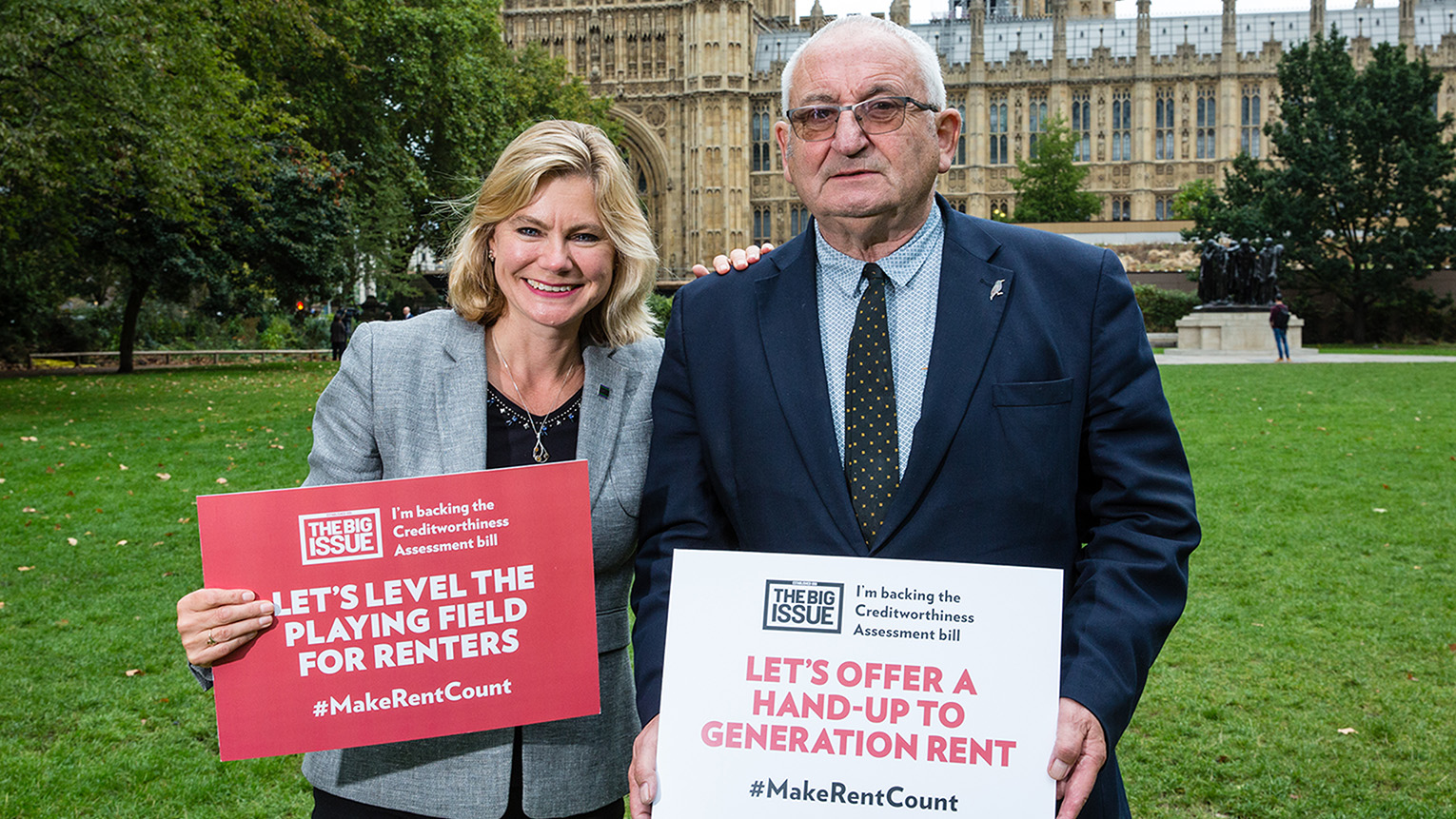Meanwhile, those who rent their accommodation have to stump up payments each period, weekly or monthly, and they can’t usually appeal to their landlord for credit on the basis that, some time in the future, they’re going to be loaded.
So, what we have is a spending today today versus a spending tomorrow today predicament.
If you’re fortunate enough to move into a future with a mortgage, there’s a knock-on effect. It means that your mortgage payments, as long as you keep them up, bring with them an ability to pay less for credit services and products because you’re considered a safe bet –because your mortgage payments are taken into account by lenders as indicative of your creditworthiness.
Meanwhile, those who rent their accommodation are unfairly penalised. Their rent records are not put to use to determine whether they’re a safe bet, and therefore, a lower credit risk and deserving of a higher credit score.
In short, unless we can get lenders to take tenants’ rent payments into account in their decisions, many millions of people will continue to get worse deals for loans, insurance, utilities and mobiles than those with a mortgage. And as most people who live in rented accommodation tend to be low paid and less advantaged by their place in the social pecking order, this unfairness is a further indictment of Britain’s lopsided, excluding economy.
Free people up to get fairer access, better deals and more value, even if they aren’t anywhere near to the mortgage ladder
As we’re seemingly shifting into a more entrenched society of Generation Rent, with even well-paid people not getting into mortgaging because of the enormous costs of housing, the failure to take rent payments into account as evidence of someone’s ability to pay – when the data is shared – is crippling more and more people.
Advertising helps fund Big Issue’s mission to end poverty
There’s now a unity of two groups of people: the poorly paid and the better paid. Both are priced out of the housing market.
House ownership was used in the Eighties and Nineties as a way of upping your social game. A royal road to social mobility for your children. But that road has mostly stalled. Hence, social mobility (if that’s what’s desired) has to be got from somewhere else.
Almost 15 million people now rent. How do you enable these people to socially prosper? One way is to make rent count. To free people up to get fairer access, better deals and more value, even if they aren’t anywhere near to the mortgage ladder.
We need to stop unjustly penalising renters because their credit scores don’t accurately reflect their ability to pay. It’s a big mission, and achieving it requires renters, landlords, social housing providers, credit reference agencies, fintechs, HM Treasury, the FCA – and, crucially, lenders – working together.
The bill, if it becomes law, will open up the biggest of debates about those who, through circumstances, are unable to be regular rent payers. There will have to be some serious thinking to address how people fall behind with rent because of, as Archbishop Justin Welby pointed out recently, the iniquities of Universal Credit; where people can be left accumulating a bad rent record because the state has dragged its social security feet.
The bill has sparked a national discussion about how data can be a force for good in equalising access to affordable credit. It attempts to address the issue of why millions of renters are condemned to pay over the odds for credit, and what we can do to level that playing field.
Advertising helps fund Big Issue’s mission to end poverty
I see the Creditworthiness Assessment Bill as one of a number of changes necessary to address the wicked problem of the poverty premium; that is, the higher costs paid by the poor for being poor. These costs, which tally up to £490 per year, are roadblocks to people getting out of poverty. They often require time and resources to negotiate your way around them, as well as being a psychological brake on your own, or your family’s, development.
Poverty not only harms the body and empties your pockets. It wilts the spirit and saps the soul. The bill addresses itself to one aspect of the high-cost credit poverty trap, where opportunity is divided amongst those who can get a mortgage, and those who cannot.
We’ll keep you informed of its progress as we continue to call on those in power to #makerentcount.
Photo: Louise Haywood-Schiefer









